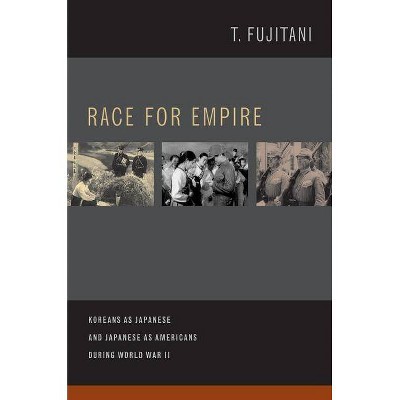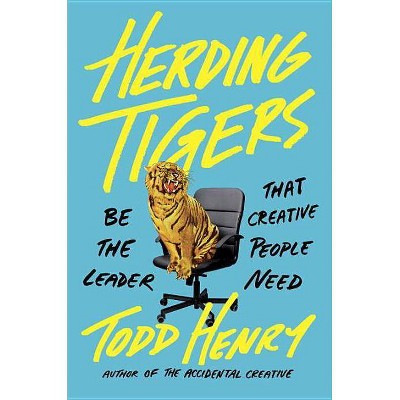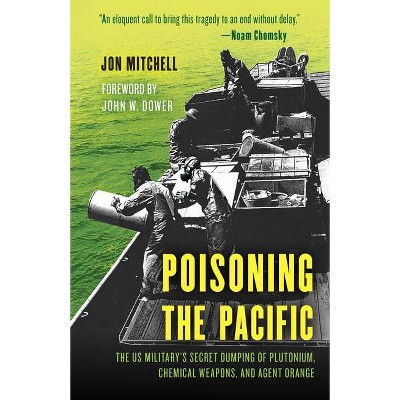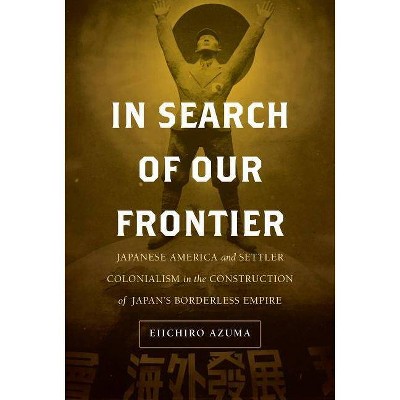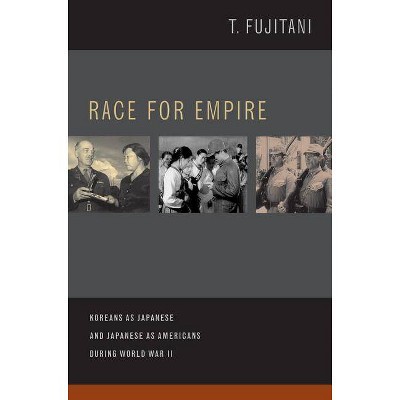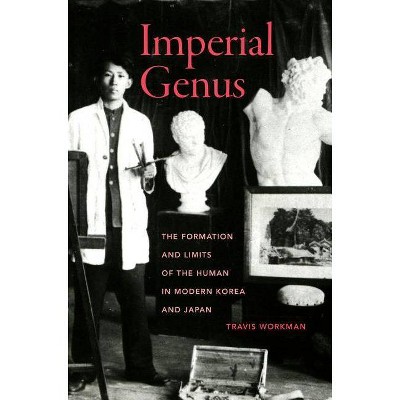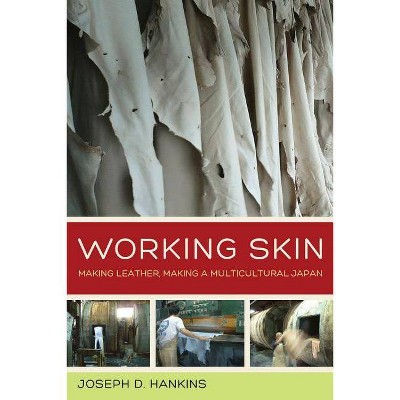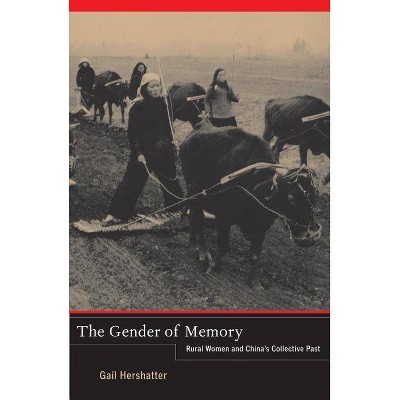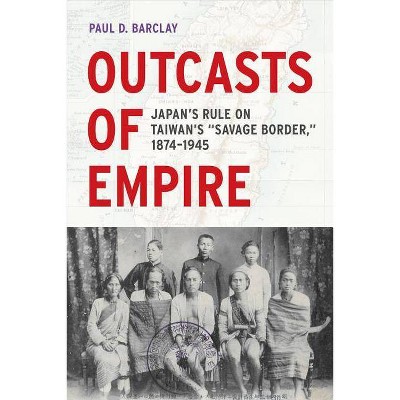Assimilating Seoul, 12 - (Asia Pacific Modern) by Todd A Henry (Hardcover)
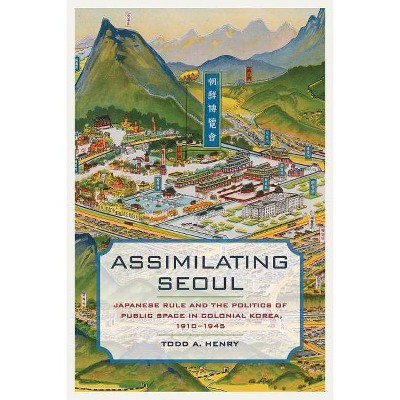
Similar Products
Products of same category from the store
AllProduct info
<p/><br></br><p><b> About the Book </b></p></br></br>"Assimilating Seoul, the first English-language book-length study of colonial Seoul during the years 1910-1945, challenges conventional nationalist paradigms to reveal the intersection of Korean and Japanese history in this important capital. Henry offers a transnational account that treats the city's public spaces as "contact zones." Through micro-histories of Shinto festivals, industrial expositions, and sanitation campaigns, he shows how residents negotiated pressures to become loyal, industrious, and hygienic subjects of the Japanese empire. Unlike previous, top-down analyses, this ethnographic history investigates modalities of Japanese rule as experienced from below. Although the colonial state set ambitious goals for the integration of Koreans, Japanese settler elites and lower-class expatriates reshaped the speed and direction of assimilation by bending government initiatives to their own interests and identities. Meanwhile, Korean men and women of different classes and generations re-articulated the terms and degree of their incorporation into a multi-ethnic polity. Assimilating Seoul captures these fascinating responses to an empire that used the lure of empowerment to disguise the reality of alienation"--<p/><br></br><p><b> Book Synopsis </b></p></br></br><i>Assimilating Seoul</i>, the first book-length study written in English about Seoul during the colonial period, challenges conventional nationalist paradigms by revealing the intersection of Korean and Japanese history in this important capital. Through microhistories of Shinto festivals, industrial expositions, and sanitation campaigns, Todd A. Henry offers a transnational account that treats the city's public spaces as contact zones, showing how residents negotiated pressures to become loyal, industrious, and hygienic subjects of the Japanese empire. Unlike previous, top-down analyses, this ethnographic history investigates modalities of Japanese rule as experienced from below. Although the colonial state set ambitious goals for the integration of Koreans, Japanese settler elites and lower-class expatriates shaped the speed and direction of assimilation by bending government initiatives to their own interests and identities. Meanwhile, Korean men and women of different classes and generations rearticulated the terms and degree of their incorporation into a multiethnic polity. <i>Assimilating Seoul </i>captures these fascinating responses to an empire that used the lure of empowerment to disguise the reality of alienation.<p/><br></br><p><b> From the Back Cover </b></p></br></br>Moving beyond top-down accounts of colonialism, <i>Assimilating Seoul</i> offers a richly textured, on-the-ground understanding of how Japanese rule operated and was contested in Seoul. The book's careful and vivid reconstruction of the entanglements of the state with city residents makes the powerful argument that the materiality of colonial power should be understood in the configuration and experiences of urban spaces. It is a splendid combination of urban and colonial histories. --Gyan Prakash, author of <i>Mumbai Fables</i> <p/> In this illuminating examination of spatial politics in Japanese-occupied Seoul, Todd Henry takes us into the labyrinth of colonial governmentality. His captivating analysis of public ritual, city planning, and industrial expositions reveals the varied uses of urban form as a technology of rule--as well as the limitations of state power. A model study of the colonial city.--Louise Young, author of <i>Beyond the Metropolis: Second Cities and Modern Life in Interwar Japan</i> <p/> Few issues in the history of world colonialism are as conceptually challenging as the problem of assimilation within the Japanese empire. Henry offers a fascinating approach to the contentious politics of what it meant to be a Korean colonial subject under Japanese rule. The many answers to this problem are sure to stimulate debate.--Andre Schmid, Professor of East Asian Studies, University of Toronto <p/> This is one of the best books on modern Korean history I've read in recent years. Henry breaks new ground, especially in English, in his focus on the 'spaces' of colonial rule, and his command of such rich and varied primary sources is impressive. <i>Assimilating Seoul</i> is a fascinating read.--Carter J. Eckert, Yoon Se Young Professor of Korean History, Harvard University<br><p/><br></br><p><b> Review Quotes </b></p></br></br><br>"<i>Assimilating Seoul</i> provides a wealth of information and brims with fresh insights... Henry's adept probe into the city's physical and conceptual ambits is remarkably perceptive." -- "Journal of Japanese Studies"<br><br>"A detailed study of Korean and Japanese identity and adaptability in the colonial setting... <i>Assimilating Seoul</i> will be required reading for anyone studying the Japanese colonial period in Korea, for scholars of colonialism in general, and for students wanting to look beyond purely nationalist narratives for understandings of the past."--Donald N. Clark "Pacific Affairs"<br><br>"As a pioneering work on an important subject so far glaringly under-researched outside of South Korea and Japan, it enriches the scholarship on Korean history in English. . . Henry's book represents first-rate, pioneering scholarship."-- "Monumenta Nipponica"<br><br>"Assimilating Seoul provides a nuanced view of Japan's colonial endeavor in Korea. . . . A respectable contribution."-- "Japanese Studies" (5/4/2015 12:00:00 AM)<br><br>"Beautifully written... The reader can feel the author's genuine passion for understanding the people of whom he writes. <i>Assimilating Seoul</i> is essential reading for all students of twentieth-century Korean society. Directed as much at engaging historians based in South Korea as those elsewhere, the book is bound to spur debate."-- "Journal of Korean Studies"<br><br>"Bold and ambitious . . . A timely and provocative study.<i>"</i>-- "The Journal of Asian Studies" (8/1/2015 12:00:00 AM)<br><br>"Henry does an excellent job . . . Highly recommended."-- "Choice" (8/1/2016 12:00:00 AM)<br><br>"[<i>Assimilating Seoul</i>] delivers an impressive contribution to the growing collection of research on Japanese imperial history in Korea, and the Japanese-Korean relationship in particular. ... It defies categorization as either a Japanese or Korean history to serve as a valuable artery of both during the time of Japan's colonial subjugation of the peninsula."--Mark Caprio "Reviews in History" (4/23/2015 12:00:00 AM)<br><br>"A new and insightful perspective."--Steven Denney "Sino-NK" (1/23/2015 12:00:00 AM)<br><br>"The first in-depth study in the English language of the history of Seoul in the first half of the twentieth century . . . entertaining and highly readable . . . a welcome addition to the growing literature on Korea's colonial history and on urban history more generally."--Janet Poole "H-Net" (7/1/2015 12:00:00 AM)<br><br>A major contribution to the study of the history of twentieth-century Korea.--John Whittier Treat "Korea Journal" (4/1/2015 12:00:00 AM)<br><br>A most welcome addition to the field of Korean studies.--Alexis Dudden "American Historical Review" (4/1/2015 12:00:00 AM)<br><p/><br></br><p><b> About the Author </b></p></br></br><b>Todd A. Henry</b> is Associate Professor of History at the University of California, San Diego.
Price History
Price Archive shows prices from various stores, lets you see history and find the cheapest. There is no actual sale on the website. For all support, inquiry and suggestion messagescommunication@pricearchive.us
